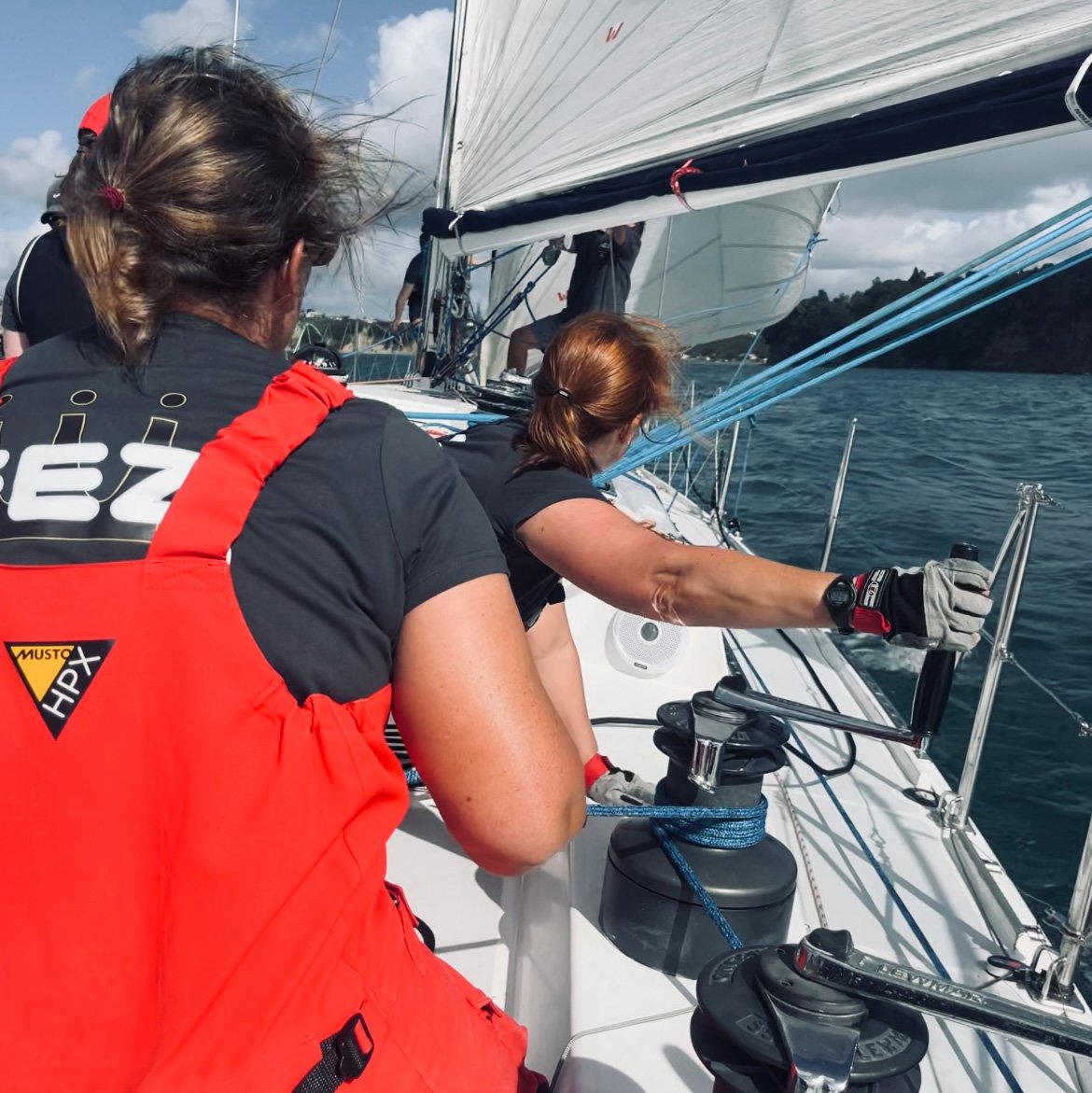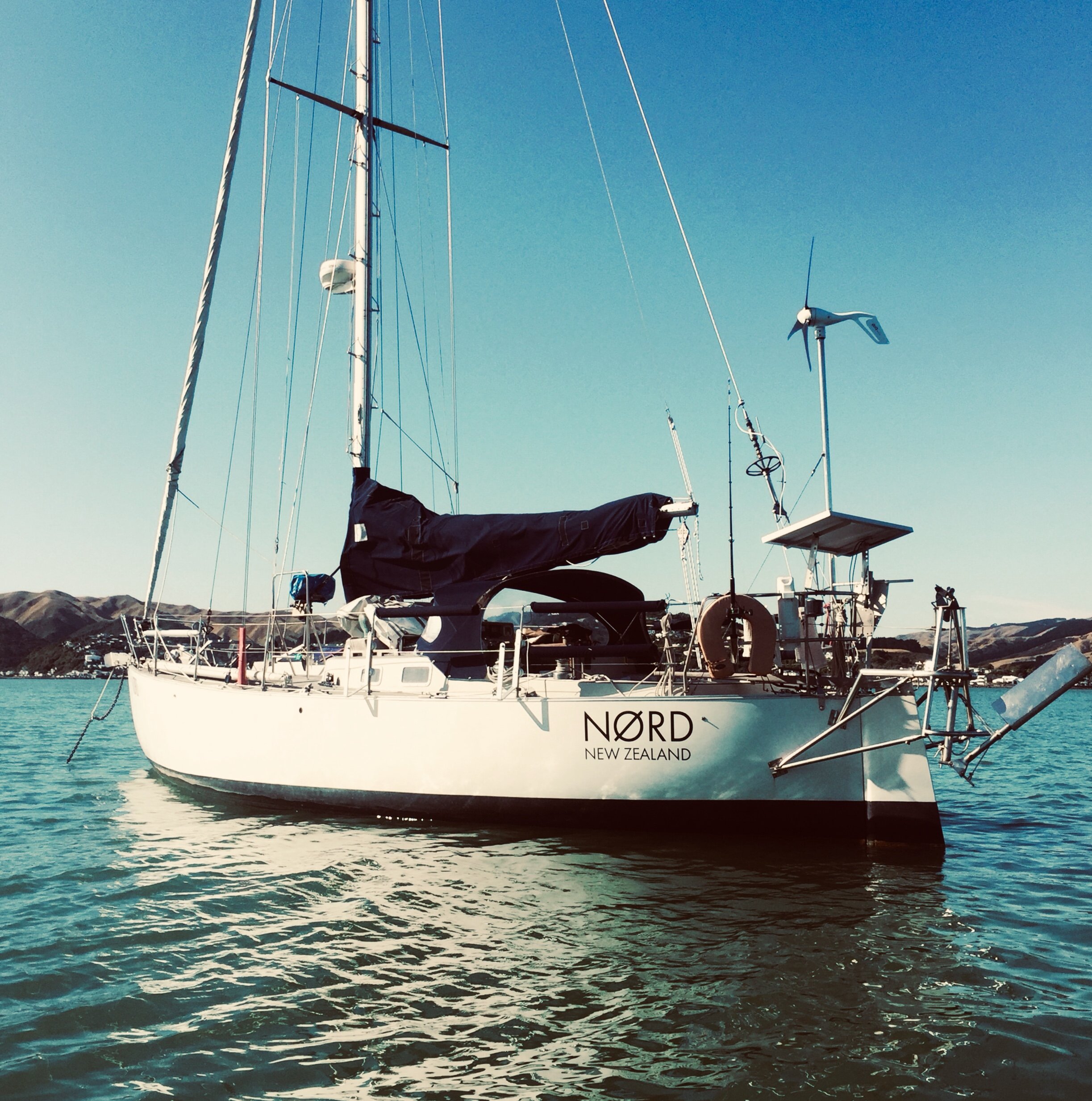7 Top Mistakes First-Time Boat Buyers Make
Saltwater Journal is reader supported.
When you buy through our links we may earn an affiliate commission (at no extra cost to you)
Buying a boat is one of the most exciting things you’ll ever do. Because it’s not “just” a boat you’re buying, you’re investing in the experience that comes with being out on the water. Who hasn’t longed for the freedom of taking off under sail to anchor up in a beautiful bay, BBQ your fresh catch for dinner while sipping a cool beer in the cockpit, and forget about the stresses of work back on land?
But pursuing “the dream” is one fraught with mistakes that can cost you more than just a few bucks. If you’re a first-time boat buyer, or even a seasoned sailor, avoiding these common pitfalls will save you from the regret that silently sneaks up on you like a Prius “Holy heck, where did that come from?!”.
Honestly, buying a boat is stressful enough with all there is to think about and organise! The good news is these 7 top mistakes are easily avoided, which will set you up to feel more confident about finding the right boat for you. If I was buying a boat for the first time, without a boatie background, this is the advice I’d wish I knew.
1. Not Doing Your Research
There are plenty of places online to compare boats and prices
Realistically, you wouldn’t buy a house without knowing the market (unless you’ve got cash to burn baby, and most of us don’t). Buying a boat is no different. It’s usually a significant amount of money you’re spending and you want to know you’re making a good buy (even if unlike a house, it’s a depreciating asset).
If you’ve got an eye on a particular boat, or you know what you’re looking for, do a deep dive into the market to compare prices, and understand what similar boats are selling for. It’s important to get a pretty accurate indication of the going price for the same boat of a similar age and condition. Here are the best places for finding a used boat and doing your research.
This knowledge arms you with the confidence to negotiate a fair deal or trust your broker in the sales process. Beyond the dollars, research what other owners are saying about the boat you’re eyeing up. Every boat design has its quirks—some you’ll love, some you’ll wish you’d known about before signing on the dotted line. Facebook forums, online reviews, and conversations with current owners can give you invaluable insights into features of the boat (that you may not have considered), which might not be ideal for you. Good research sets you up with the confidence to know what you’re buying, at the right price, and helps save you from a future problem.
2. Skipping the Survey: The “She’ll Be Right” Trap
We have a saying in New Zealand: “She’ll be right.” It’s our laid-back attitude of thinking nothing will go wrong… until it does. Skipping a marine survey to save money, or because you didn’t realise how important it is, can leave you with a mess that can’t be easily fixed — or not without piling more money into the boat, money that you hadn’t planned on spending!
A professional pre-purchase inspection survey will help safeguard against this. It’s a thorough boat out-of-water poke and prod by a marine expert that will reveal issues you might not see/ or know to look for/ or have the ability to test for (like moisture readings). They’ll pick up things not working onboard like a bilge pump or a blown navigation light, and flag anything serious for you.
Many times a surveyor will discover major issues you had no idea were there — from structural issues, to rot, to issues with hull integrity, and standing rigging. Sometimes the issues are ones you’ll be prepared to fix, other times they’re deal breakers.
If you’re spending serious money on a boat, it can be worth having a separate marine engine survey done too, as the engine is one of the most expensive components onboard to replace. Trust me, when it comes to knowing the condition of the boats, it’s better to be safe than sorry. No survey is bulletproof (things can and will go wrong with your boat in future), but the initial survey cost will always pay off by knowing what you’re REALLY buying upfront, and save you from inheriting any problems you weren’t expecting.
3. Getting Emotionally Invested Before It’s a Done Deal
Ok this one is hard (I’m so guilty of this). It’s natural to see a boat online and fall in love with it, and start planning where you gonna go, what it’s going to be like, and all the amazing adventures you’re going to have together. Whether it’s to live on, go fishing with your mates, or cruise with family — the dream of sailing off into the sunset feels good and it’s easy to get carried away. But before you let your emotions steer the ship, remember to do your due diligence and use the facts at hand (which definitely doesn’t sound as sexy as sunset sundowners sound but nothing will take the wind out of your sails like a premature celebration).
Does the boat suit your goals? What did the survey reveal? (You got one right?!) How much work needs to be done? What are the costs you need to budget for? And, importantly, can you afford it now AND in the long term? Keep your heart in check until you’ve ticked all the boxes. We want you boat buying smart.
4. Buying More Than You Can Afford Long-Term
It’s tempting to go big or go home, and if we’re talking ambition then I’m ALL IN waving my pom-poms for you (or actually a sandy sarong in excitement from a beach), but if we’re talking floating vessels, then the truth is, bigger boats come with bigger bills.
Maintenance, berthage/storage, insurance, you name it — everything scales up. And while that luxury vessel with it’s big sliding fridge/freezer drawers, washing machine, and state of the art B&G® systems might seem perfect, over-comitting can quickly turn into a financial nightmare.
YouTube is an amazing resource for seeing boats in action, and hearing reviews from other sailors. It’s a visual feast of the latest cruising catamarans with all the space and appliances you’d ever hope to find in a small apartment. It’s fun, and entertaining and fuels the desire to want more. But these big production boats often aren’t financially viable without taking on stressful debt, or investing everything, leaving no savings to spare.
Consider not just the purchase price, but the ongoing costs and ask yourself if this boat fits comfortably within your budget now and in the future.
It’s fairly accurate to budget 10% of your boat purchase price for regular maintenance each year, and that doesn’t include any upgrades you may want to make. Remember, you want to enjoy your time on the water, not stress about how you’re going to pay for it over the years to come.
No matter your budget, there’s always someone else with a nicer boat out there, the next level up — whether that’s a 40ft, 50ft or more. My best advice? Buy smaller and within your means.
There are plenty of inspiring people truly living their dreams of cruising long-term, who are able to sustain the lifestyle because they’ve bought a smaller, more affordable boat. Importantly — one that’s within their realistic long-term cruising and maintenance budget. If you’d like some budgeting help, this worked for us.
5. Being Impatient
Ohhhh, young grasshopper, in the world of boat buying, patience truly is a virtue. (Sidenote: why is there not a grasshopper emoji?!). Rushing into a purchase because you’re eager to get out on the water can lead to decisions you later regret (remember ignoring your parents when you were 16?). Take your time, shop around, and don’t be afraid to walk away if something doesn’t feel right. Yes, in this case — always trust your gut. Remember, there’s not really such a thing as the “perfect” boat but there will be one out there that’ll meet most of your ideal characteristics list, and waiting for the right one will save you from future headaches (consider this my free dating advice too).
6. Underestimating How Much Work Needs to Be Done
Installing a new anemometer (wind instrument to show speed and direction)
Every boat has a to-do list, but some are longer (and more expensive) than others. Even brand new boats have things that break (which always surprised me but it’s true!). This is where your pre-purchase survey is invaluable in giving you a pretty solid idea of what needs fixing, and help form the base of a maintenance plan.
It’s easy to underestimate the time and money required to get a boat in tip-top shape though. Sure, you can learn as you go — there’s no shortage of YouTube tutorials showing amazing boat restorations, but consider whether you have the time, skills, and budget to take on a project.
Boat jobs rarely go as planned, and if you’re not prepared, that dream boat can quickly become a floating nightmare. Repairs take four times as long and cost three times as much as you expect. Over-estimate EVERYTHING, and you’ll probably be about right.
7. Ignoring Your Long-Term Goals
Finally, think about your long-term plans. Will this boat suit your needs a few years down the line? Maybe you’re dreaming of long voyages, or perhaps you just want a weekend escape. Whatever your vision, make sure the boat you buy aligns with it, and not just because it’s a “good deal” or you’re in a hurry to buy. Otherwise, you’ll find yourself back on the market sooner than you’d like, and this time trying to sell.
In Summary
Buying a boat is a big decision and there’s a lot to consider — so much sometimes that it can feel like a bit of a downer when you read an article like this (with all the what not-to-dos) — but if you follow this sensible advice you’ll be setting yourself up well prepared for boat ownership with much happier days in the long-run! And that’s what I’m here to support. Having said all that, don’t be afraid to actually take the plunge or grab opportunities that arise. After all, life is for living and mistakes will be made (despite our best efforts) — just enjoy the ride!

















